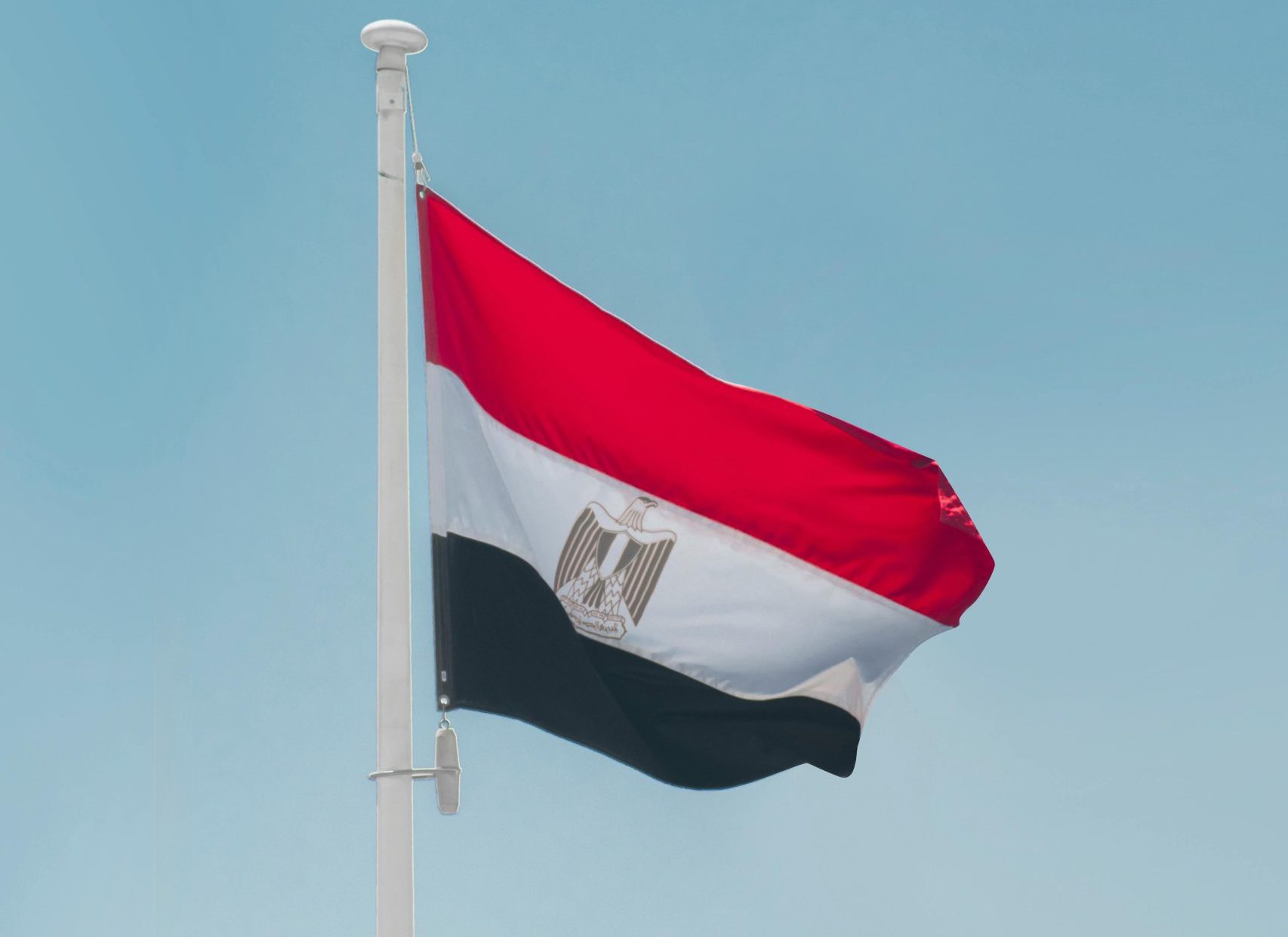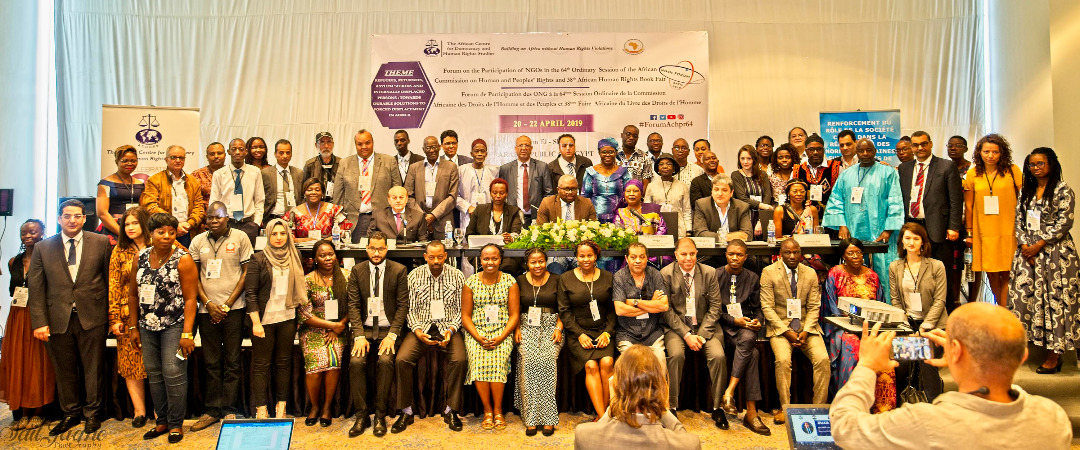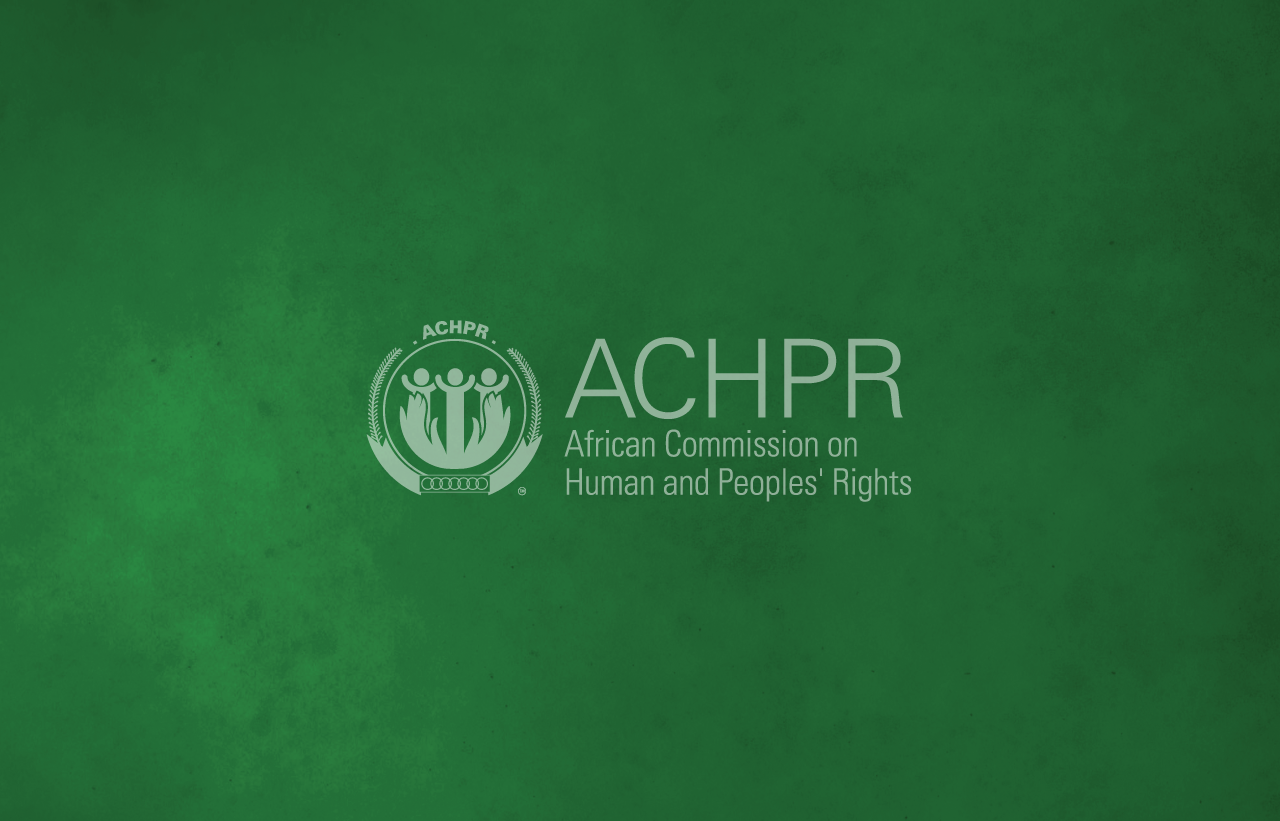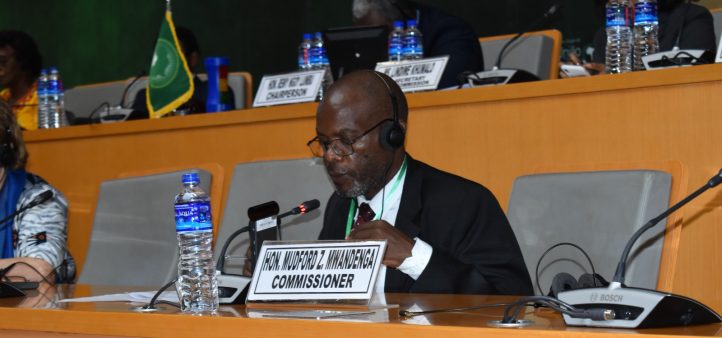As a consequence of the obstacles defenders faced to obtain visas in order to travel to the location of the session, i.e. Egypt, this session’s turnout was lower than the usual. Only 135 participants took part in the debates, coming from 25 African countries and Western countries such as France, Switzerland, the UK and the USA.
The situation of human rights in Africa
In the opening presentation made on the situation of human rights in Africa, panellists presented the human rights situation in all five sub regions of Africa.
In North Africa, the important and lasting migration issue was highlighted. Indeed, during the first panel of the first day, panelists discussed solutions to the integration of refugees coming from sub-Saharan Africa who have been living in Morocco since the 90s. They also noted the important growth in the number of refugees these past years, recognising a clear need to review the national policy on the topic. Moreover, human rights defenders in the region are still being persecuted, bloggers especially. As for slavery, it still remains pandemic especially in countries such as Mauritania and Libya.
In West Africa, some positive steps have been taken. A Burkinabe women human rights defender, Safiatou Lopez, who had been arrested for allegedly financing the escape of several detainees, was freed and Togo reinstated the Ministry of Human Rights. In Gambia, the killers of two environmental defenders who were murdered during protests against a sand mining company were finally arrested.
In Central Africa the situation remains preoccupying. Indeed, in Cameroon there is a proliferation of armed groups committing extra judicial killings and journalists and political opponents are being arrested for their dissent. Moreover, in light of the growing migration in the sub region, as well as in East Africa, due to numerous conflicts, the panellist called on the African Commission to take measures to protect internally displaced people.
In Southern Africa there is a growing practice of using discriminatory policies to restrict the enjoyment of fundamental rights.
Refugees, Returnees and Internally Displaced Persons
All panels during the session of the Forum followed the 2019 theme of the African Union.
Notably, during the panel on ‘Challenges and innovative approaches in advancing the access, reintegration of women and girls IDPs, returnees and refugees in education’, Cleophas Angwenyi, Regional Coordinator at East Africa Child Rights Network, expressed his concern about the fact that girls and young women do not have the same access to education in general. Therefore when displaced, they can be twice as vulnerable. When countries can not fulfill their obligations towards their own populations, refugees will be the ones being sidelined, he pointed.
The panel ‘Protecting defenders working on the rights of people on the move’ presented the case study of defenders from Burundi who found refuge in the neighboring countries such as Uganda once the conflict broke after the elections of President Nkurunziza in 2016. It also emphasised that Africa is currently facing a wave of recurring humanitarian crises and persistent human rights violations which caused millions to flee their homes in search for protection. Therefore, it is primordial that the international community takes the necessary steps to protect those working to guarantee that the rights of people on the move are upheld.
Also, the Norwegian Refugee Council (NRC) officially launched its training manual for CSOs on the Kampala Convention and its Model law during a panel where Yemisrach Kebede from NRC presented the document as an opportunity for African civil society organisations to better contribute to the protection of the human rights of internally displaced people.
Shrinking environment for defenders
During the session, defenders reported the systematic harassment and targeting they face in many countries. Many African countries are indeed further restricting civic space by adopting restrictive legislations which pay little to no attention neither to the African Commission’s standards nor their own constitutions. Defenders from Cameroon and Burundi mentioned the respective laws in their countries against terrorism and freedom association. These laws are being instrumentalised to muzzle defenders and oversee their every move.
Furthermore, as the session was held in Egypt, defenders saw first hand what restrictions and reprisals meant. Indeed, many were not able to attend the session because of restrictions in obtaining the proper documentation to travel to Egypt. In addition to the difficulties faced ahead of the session, those who were able to travel to Sharm El Sheikh had to overcome new challenges going, for two specific cases, as far as physical threats against two women human rights defenders by Egyptian officials. Contrary to the usual custom, identification badges for the 64th session are being issued by officials from the Arab republic of Egypt rather than the secretariat of the African Commission. This other derogation went a long way to undermine the independence of the Commission and intimidated especially Egyptian defenders to participate in the session.
During this session, NGOs have been denied the possibility to organise parallel events within the Conference Centre where the African Commission’s session and NGO Forum were taking place as well as hotels in close surrounding. The denial of these facilities reinforces reports of the firmness with which the government of Egypt crushes dissent, discourages public participation in public affairs and punishes people who dare to claim basic human rights.
Resolutions and recommendations adopted
Country resolutions
- Resolution on the situation in South Sudan
- Resolution on the human rights situation in the United Republic of Tanzania
- Resolution on the situation in Cameroon
Thematic resolutions
- Resolution on the abolition of the death penalty in Africa
Recommendations
- Recommendations on the situation in Burkina Faso
- Recommendations on corruption in Africa




